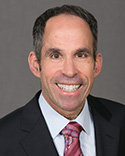(This is the sixth in a series on the impacts of the coronavirus on employment and the workplace. Read part one, part two, part three, part four and part five.)
Over the past week, plans for a phased reopening of the economy moved quickly forward. The White House issued reopening ideas and potential structures for the states. State Governors began appointing task forces on timing, protocols and implementation.
The speed of response is due in part to the numbers on ongoing job devastation last week. On Thursday, the Department of Labor announced an additional 5.24 million new Unemployment Insurance claims just for the week ending April 11, bringing the number of new claims filed in four weeks to more than 22 million. In California, the job loss has been even more dramatic: 2.6 million claims just in the past three weeks. In a month, we’ve gone from an economy of job affluence to one of job scarcity.
To a great extent, public health professionals and businesspersons identify the same main challenges for reopening. Further, they are testing strategies that should inform the upcoming state plans, to meet these challenges.
Ms. Sharon Caffrey is a member of the Covid-19 Working Group of the U.S. Chamber of Commerce, and Partner and Co-chair of the Trial Practice Group at Duane Morris LLP. She has been deeply engaged in implementation issues, advising Essential businesses, continuing in operation, as they adapt. Additionally, she has been assisting businesses, now in shutdown or reduced mode, as they plan for reopening. She briefly highlights the following five challenges for the task forces—and what can be learned from recent public health and business efforts.
Increasing Testing Stock and Capacities: Like others in business planning, Caffrey identifies testing as at the top of the challenges, and central role in reopening. The ramp up of testing nationwide and in individual states has been slow due to a number of factors, and as late as the first week of April only an estimated 100,000 people per day were being tested. Caffrey notes that the past few weeks have seen a sharp increase, as the early top suppliers of Covid-19 tests have been joined by new entrants. [...]
Contact tracing: Caffrey identifies contact tracing as another key strategy for the task forces in controlling additional "hotspots" of the virus and ensuring that social distancing is maintained. "Imagine a manufacturing facility or food production facility where people can work at a distance, but may fall into old habits of chatting with co-workers or in moving goods, ignore the 6’ social distancing requirement. We need ways to ensure we maintain social distancing and hygiene procedures." [...]
Addressing shortages in Personal Protective Equipment (PPE): Caffrey notes that New Jersey, Pennsylvania, New York and other states have issued orders requiring most businesses and non-critical health care facilities to register their PPE, including face masks, face shields, and sterile gloves for use on the front line of the fight against Covid-19. "Clearly, as a country we are playing catch-up in the production of PPE. Several sources have reported that we have been dependent on China for upwards of 90% of the PPE used in the US. This has required plants to retool to make PPE. The US is amazingly entrepreneurial and people and companies are stepping up to make PPE, both medical grade and non-medical grade. We need a ready supply of PPE for both medical workers and also face masks for workers returning to offices and manufacturing facilities to prevent its spread." [...]
Employer fears of lawsuits: Lawsuits already have arisen seeking to hold employers liable for cases of Covid-19, even when the employer has taken reasonable measures in following the Centers for Disease Control’s recommendations, including maintaining social distancing, sanitizing the workplace and providing masks. Caffrey urges that state legislatures and task forces address the vulnerability of employers to lawsuits even if they take all reasonable measures, and how this can undermine re-employment.
Longer term planning for national self-sufficiency in PPE and pandemic response: Finally, Caffrey emphasizes: "This pandemic has shown that we need to produce a critical amount of PPE and medical supplies in the United States. We also need to continue to fund pharmaceutical research and development. The National Institutes of Health and pharmaceutical companies need to continue to focus on research and development. We cannot be isolated in our response and should partner with other countries to share information and resources to find both remedies and a vaccine. The more diverse the talent pool working on these solutions the quicker they will be developed. As someone who practices in the area of products liability, pharmaceutical companies are sometimes vilified for the cost of medication. Behind those costs are years of development, testing and clinical trials with no financial return. I hope this pandemic shows the importance of having pharmaceutical companies committing resources and money to product development." [...]
To read the full text of this article by Duane Morris attorney Michael S. Bernick, please visit the Forbes website.









